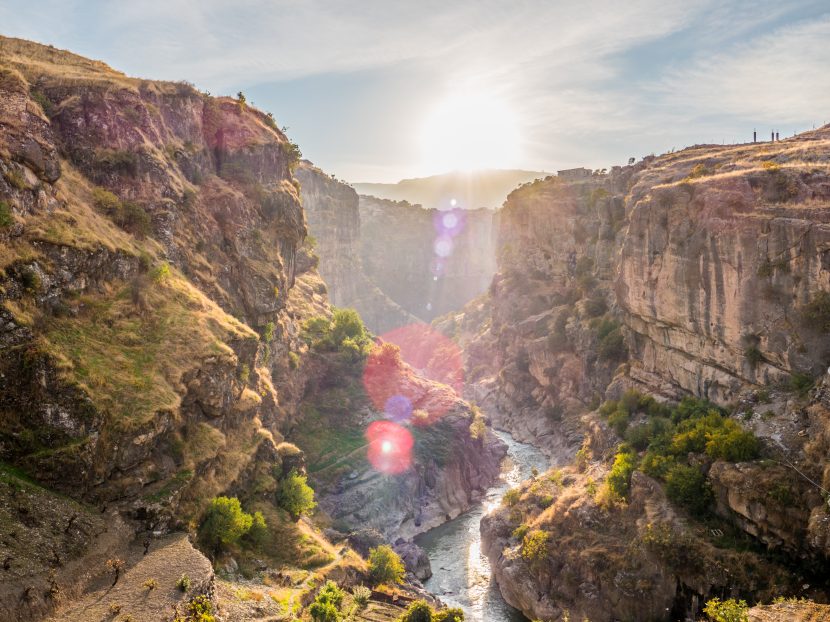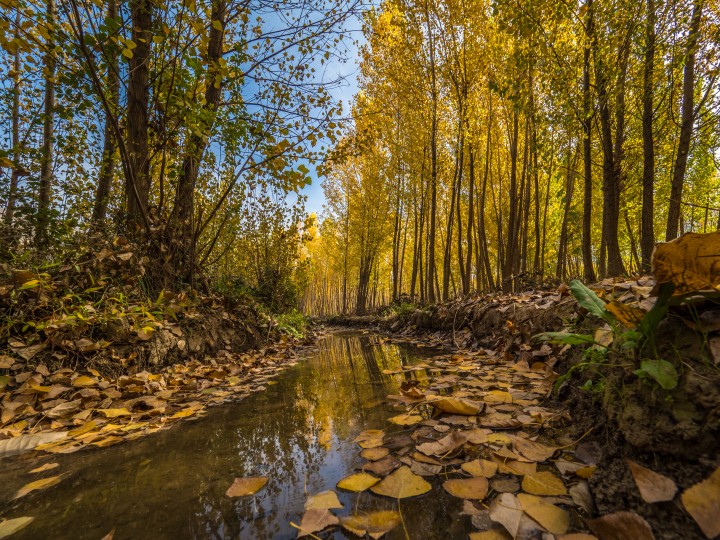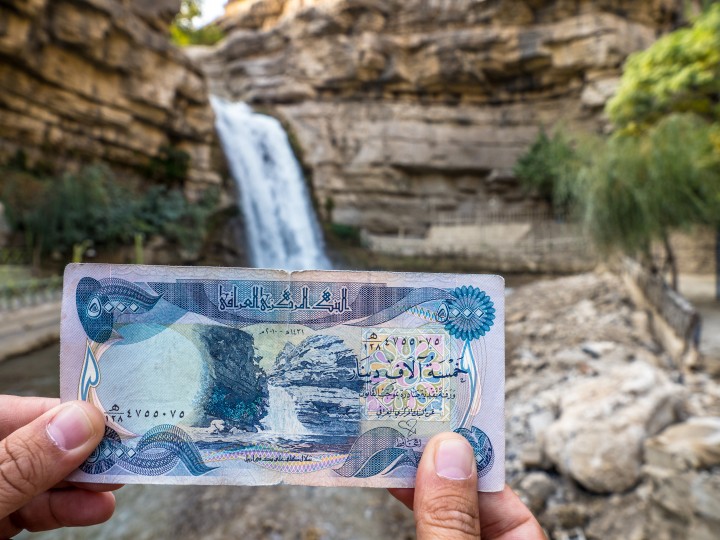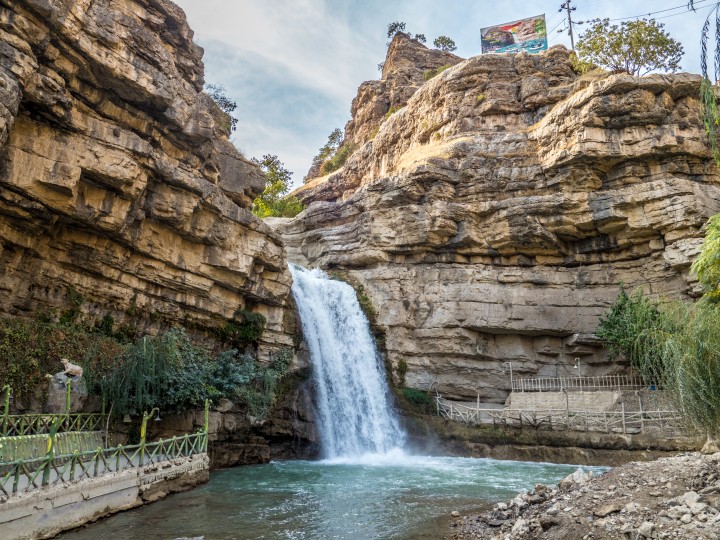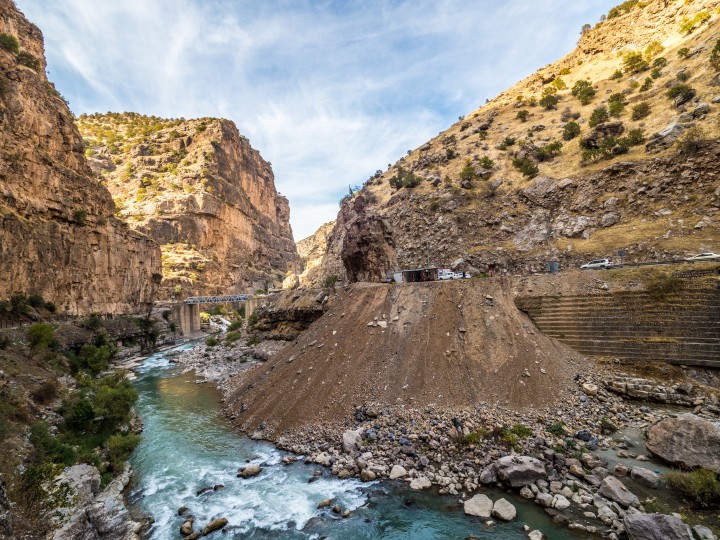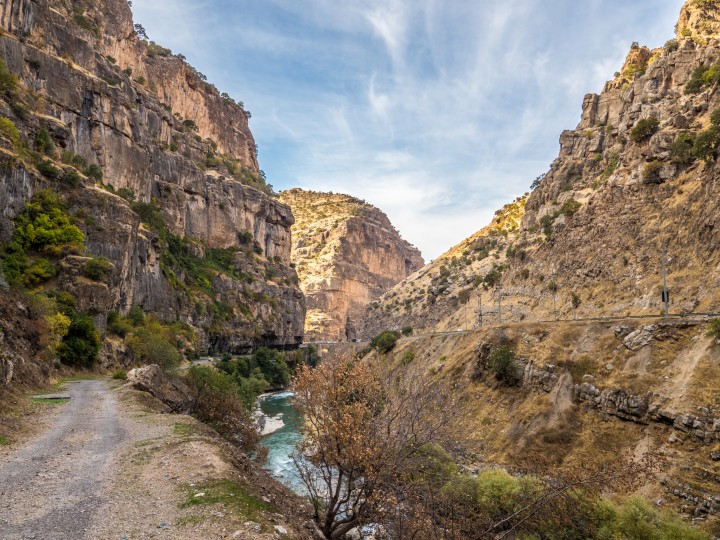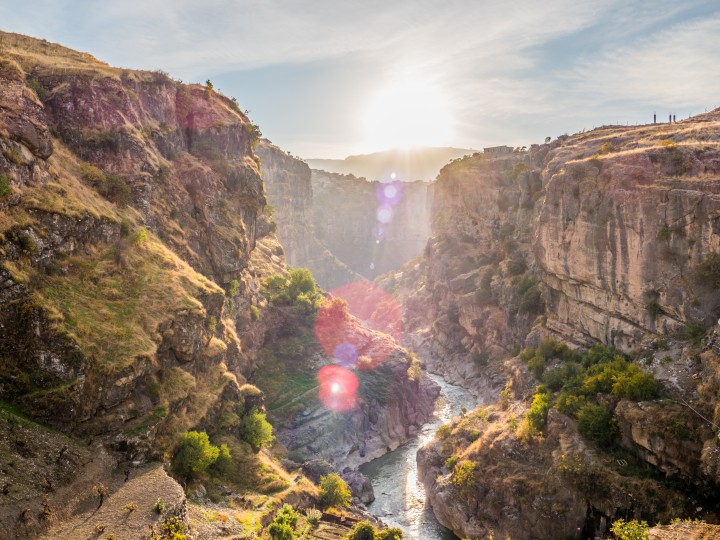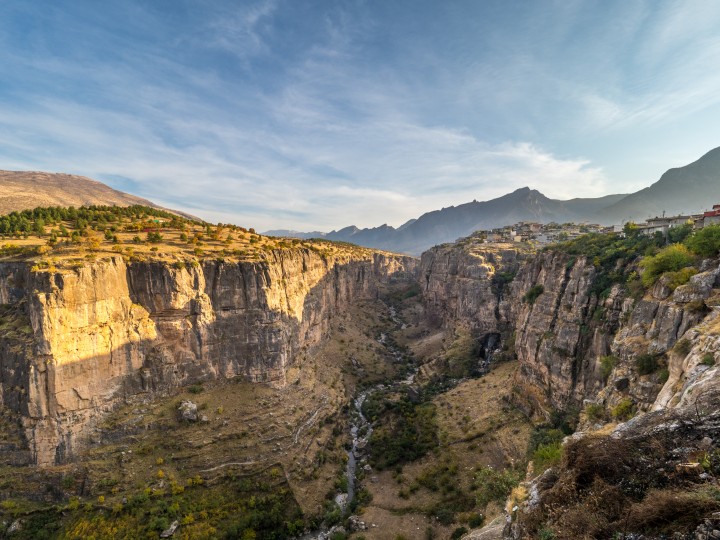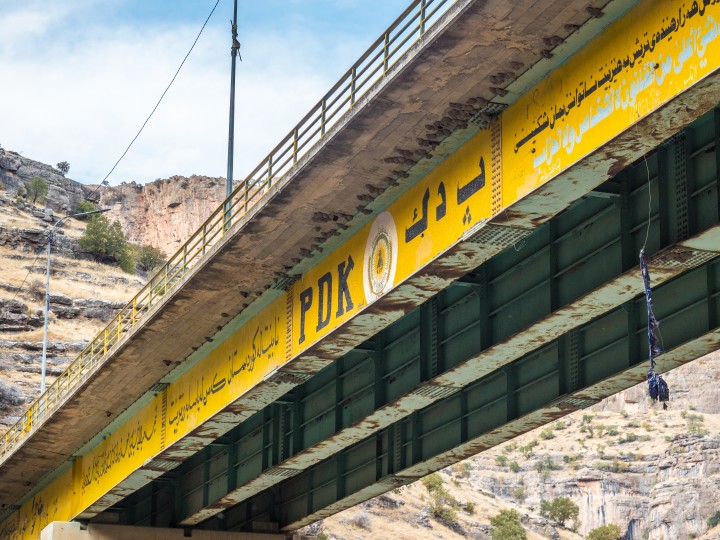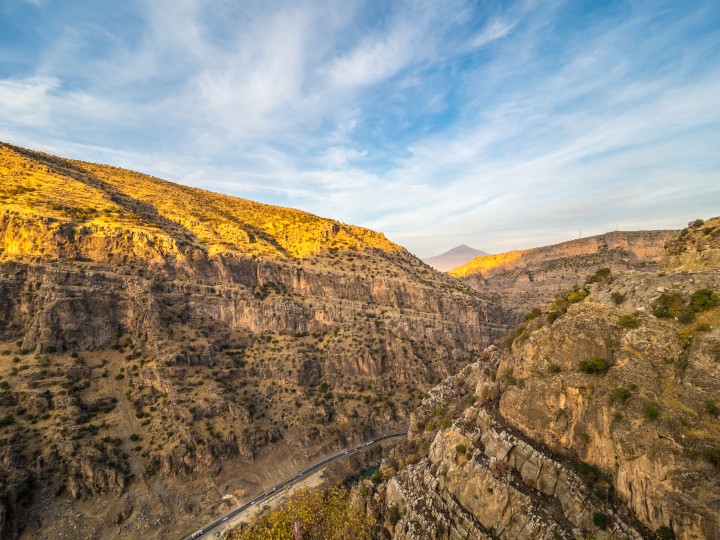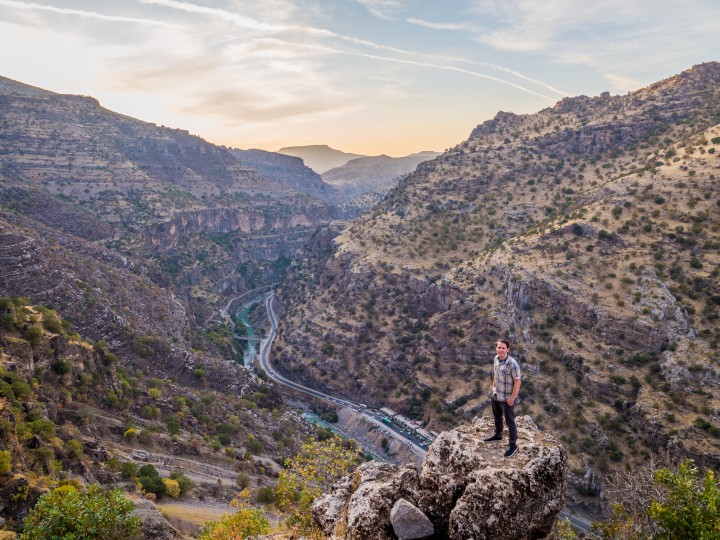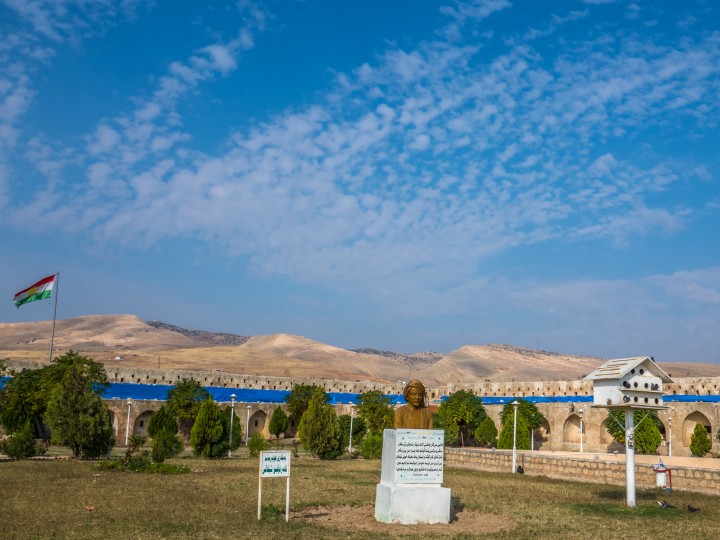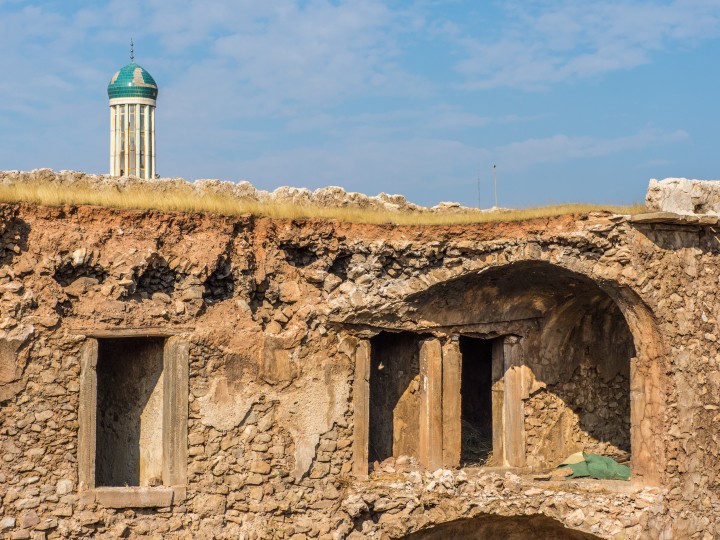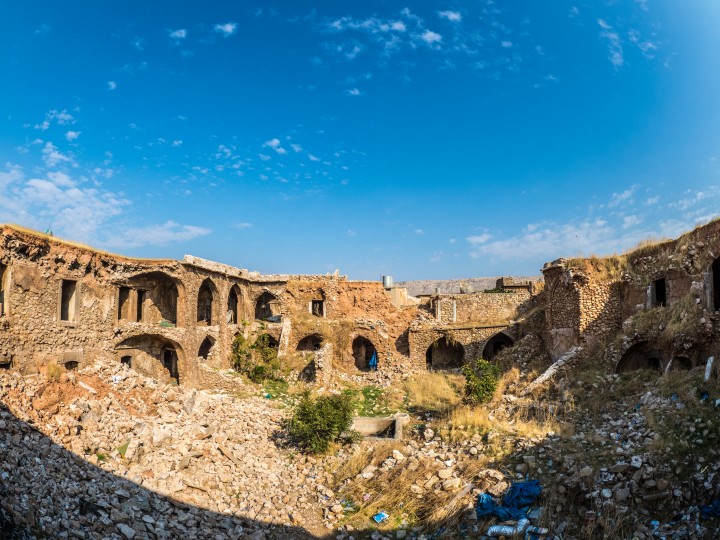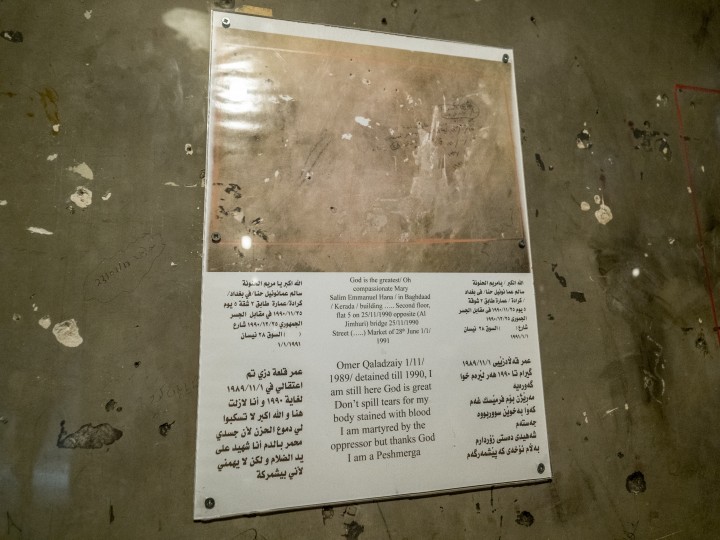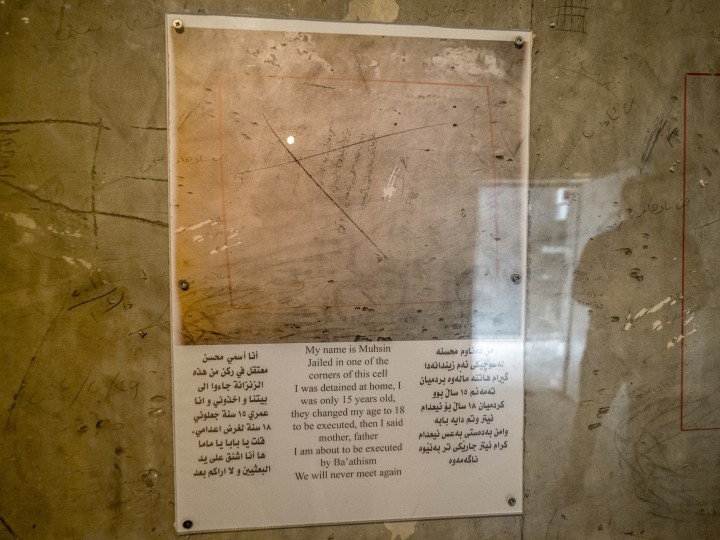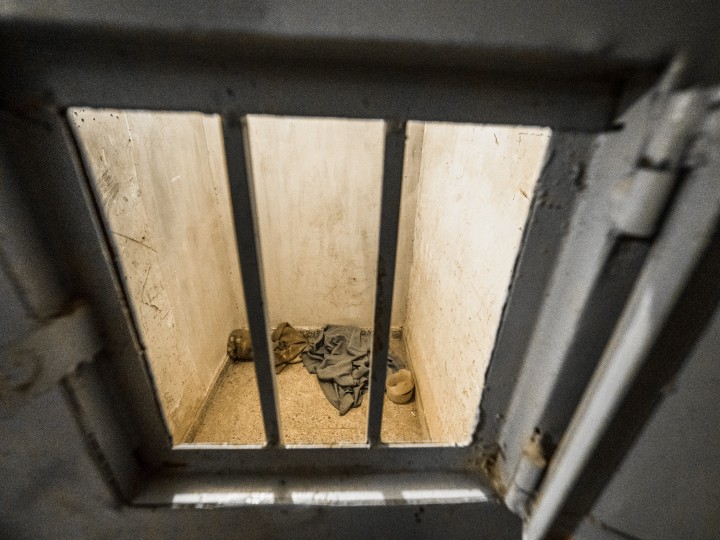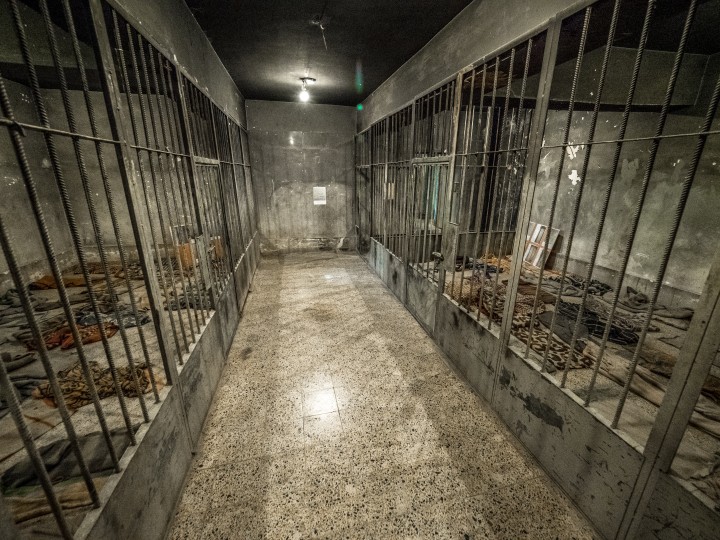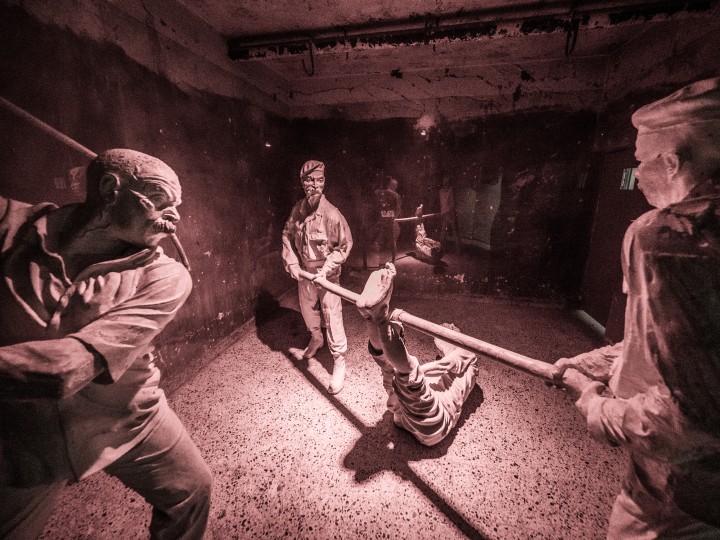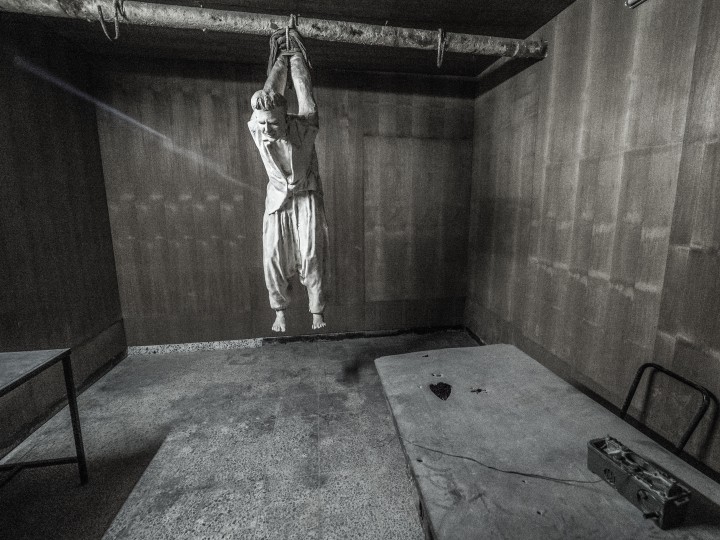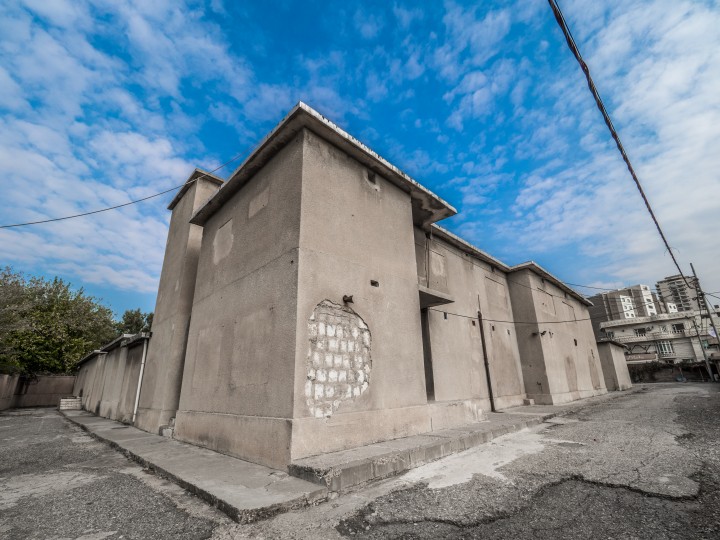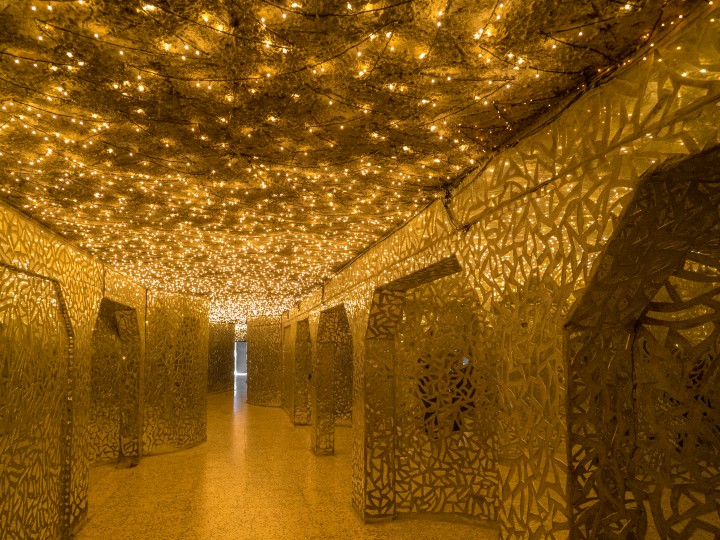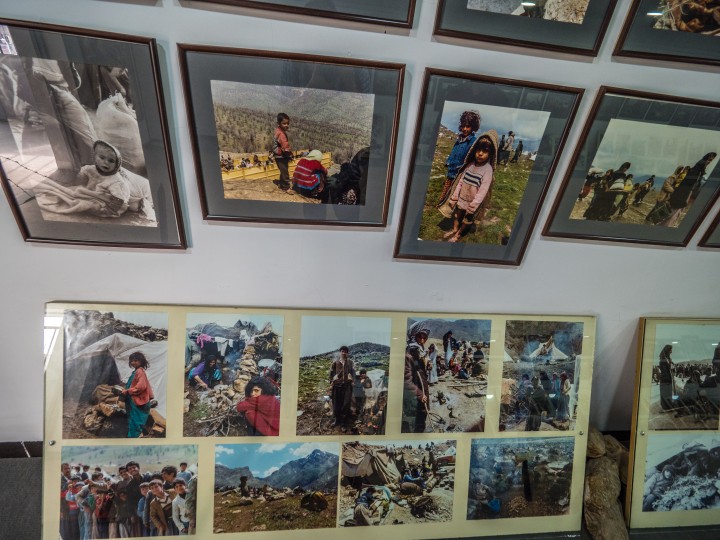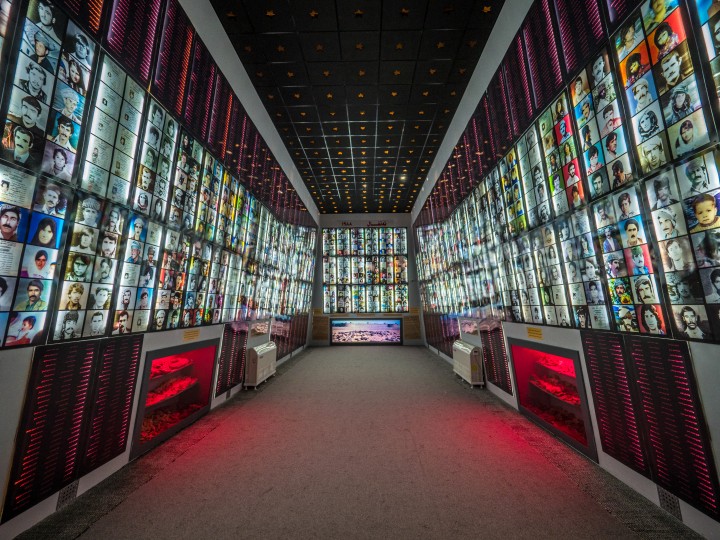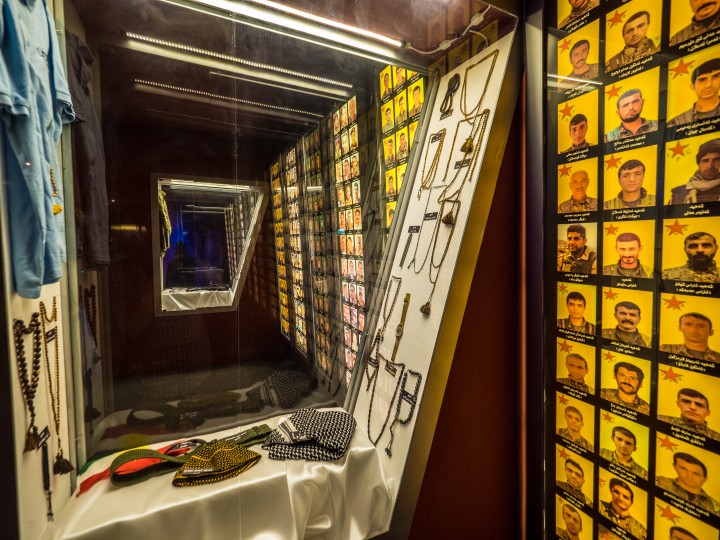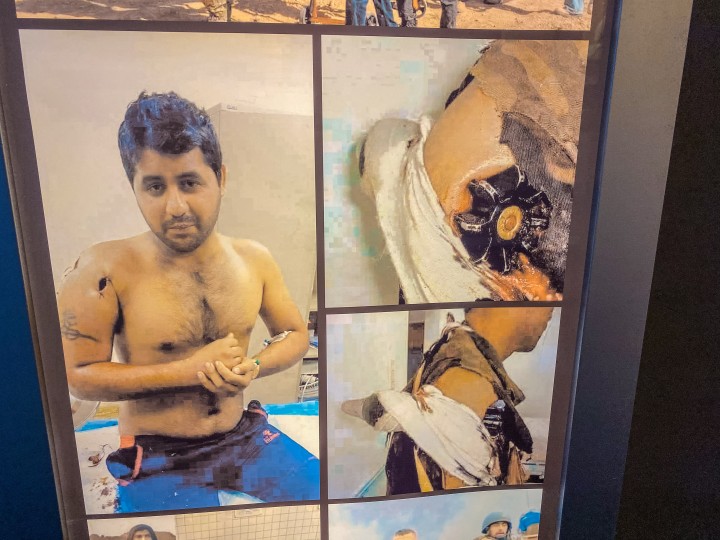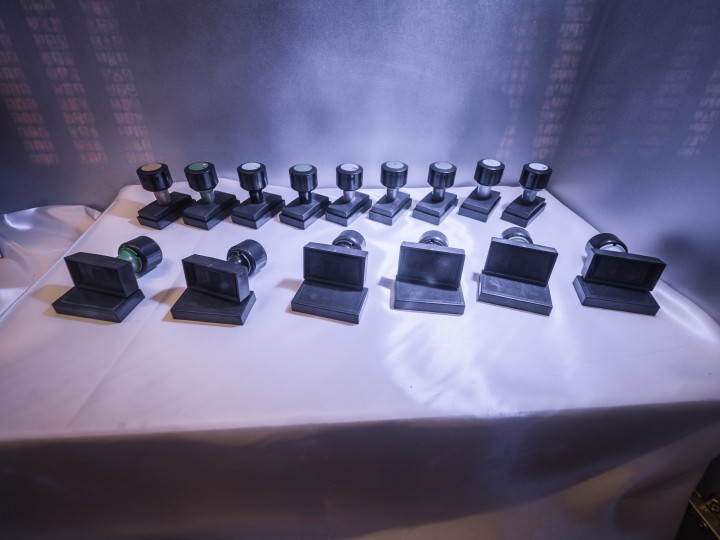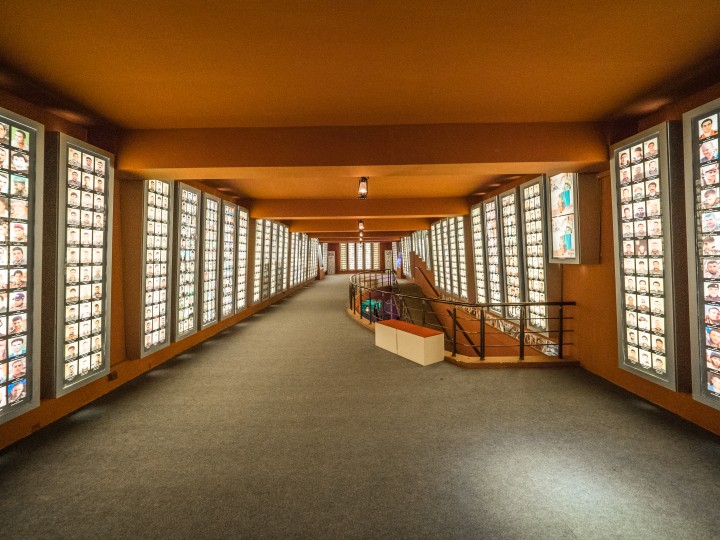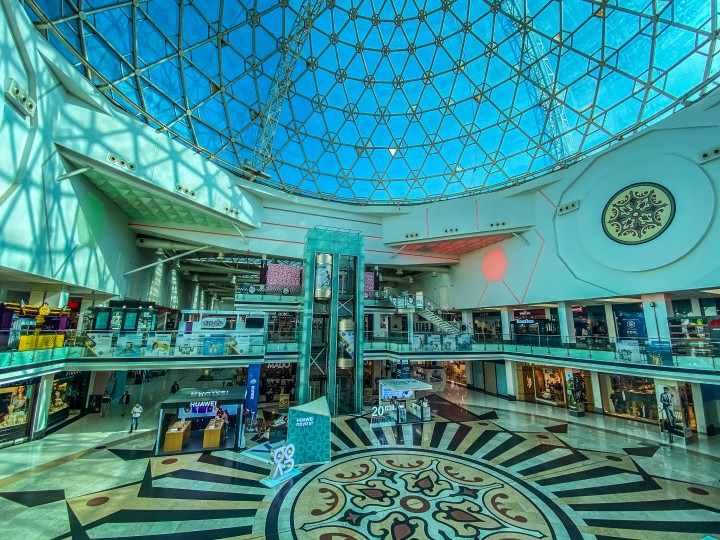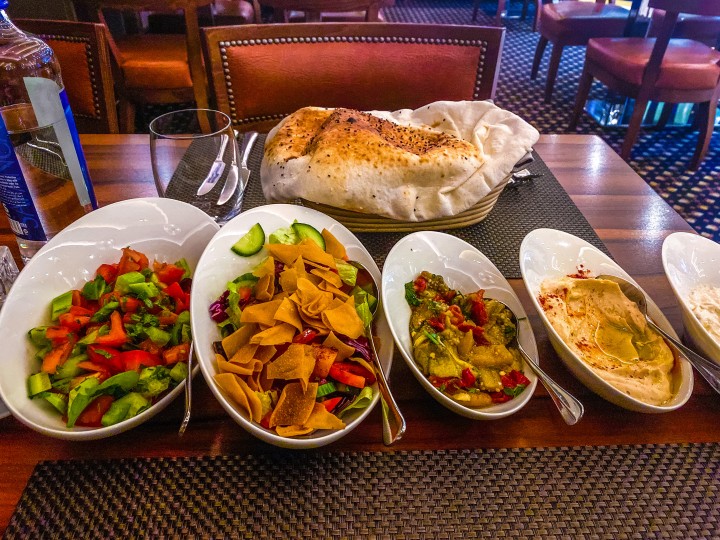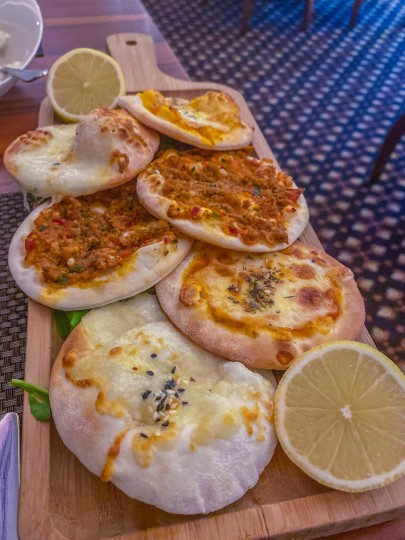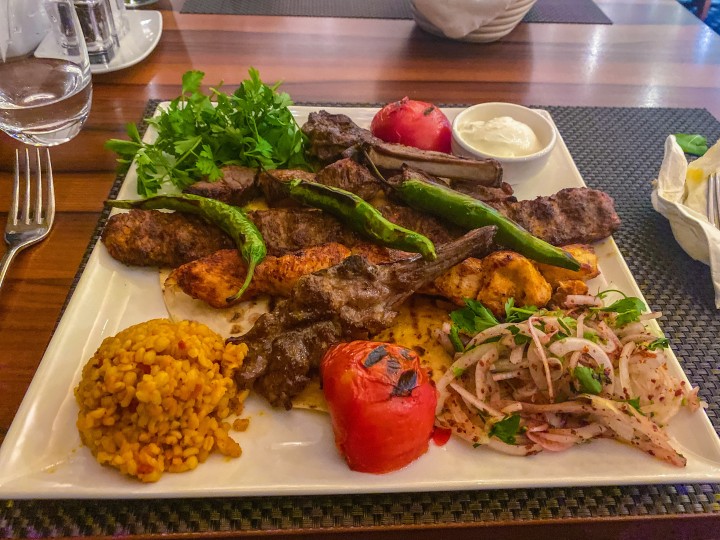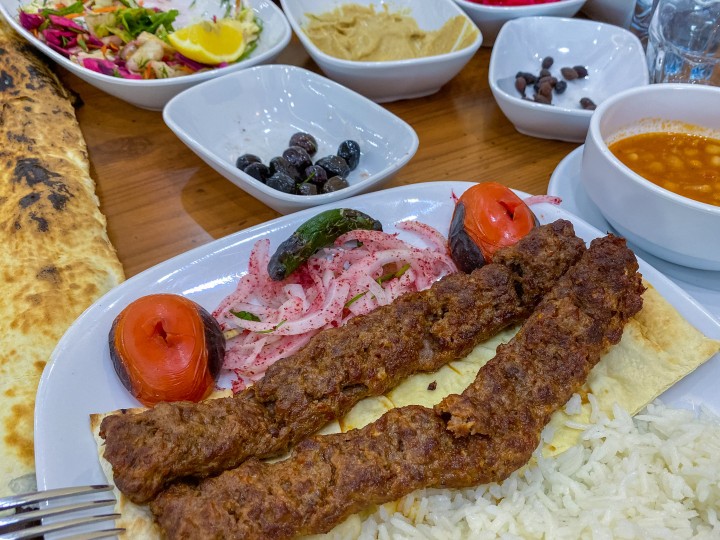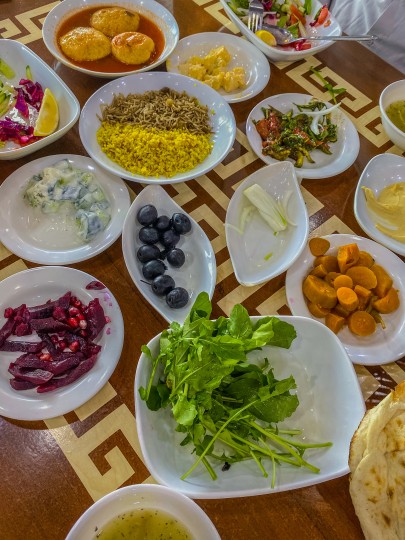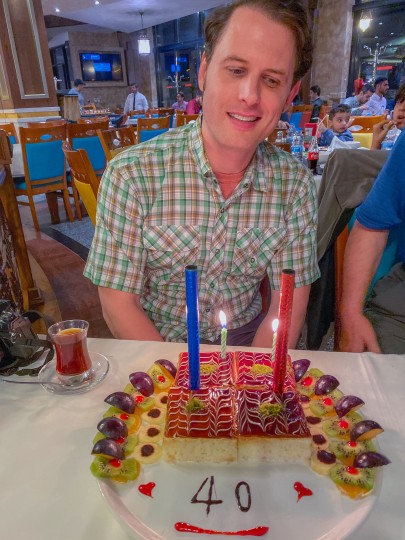The mountains, the rivers, the waterfalls… these were not the views that I expected in Iraq. And this was only in a few limited days driving around Iraqi Kurdistan. In the time since, I’ve realized there are some incredibly picturesque towns even further afield in Northern Iraq. My guides did a great job taking me to some really beautiful spots in a short period of time though, and people seem consistently surprised when I show them pictures from my trip to Iraq.
Prior to my visit, I pictured Erbil to be a fairly small and empty town. Staying close to the airport, that illusion is maintained, with new construction surrounded by expanses of desert. However, Erbil is a fast-growing city home to 1.5 million people. Visit the city center, the markets, the malls, the main streets to get a sense of the size and it seems to be a well maintained medium-sized city with a ton of new businesses in every sector imaginable. I must admit that seeing some of the small private English-speaking hospitals and clinics caught my attention for personal work opportunities. The quality of life in Erbil, from suburbs (which I definitely didn’t expect) to chain stores, to complaining about mild traffic was just far better than I imagined. As for Sulaymaniyah, this city has a similarly-sized population, but for the brief time I was there, the city actually looked larger and more modern than Erbil. If I relocated to Iraq, I wouldn’t picture living in a high-rise condo and commuting over newer construction freeway interchanges, but that seems to be what I mostly saw.
As for reception, at this point it feels a bit redundant to speak about being received warmly and to talk about the friendliness of a people. Writing a paragraph about that, I could be in a hundred different countries. Hospitality is not a feature of a country or a region, by any stretch. I think when it’s worth noting, however, is when relations between governments have been fraught for many years. Visiting a place like North Korea or Iran or Somalia and being received warmly as an American is, I think, noteworthy. The same applies to Iraq, even if it’s Iraqi Kurdistan. And most especially during the time of the current occupant of the White House.
It wasn’t spoken of by name, but the Kurdish people have been betrayed by the American government before, multiple times over multiple decades. The history of the Kurdish people is one of oppression and betrayal. That they remain welcoming and hospitable, even to people hailing from the places that have created such suffering for their people is a testament to their loyalty. To be clear, I understand that on balance, America has largely helped the Iraqi Kurds and that they remain our allies. However, my visit came at a time when that allegiance was thrown into question through actions taken in Syria. I can personally appreciate the value of loyalty. I don’t know that I would be as welcoming to a group of people that had betrayed my people after decades of standing by them honorably. The Kurdish people clearly place a high value on loyalty. They also carry a deep sense of shame when that loyalty is betrayed, even through no fault of their own. It’s a concept that Westerners clearly are unable to grasp, even if you throw a group of doctorally-prepared experts together to focus-group about it. To give an example, look at the picture below:

Housing was built in a valley on the approach to the sacred temple of Lalish. As ISIS was defeated and expelled from Iraq, there was an issue of Yazidi girls that had been kidnapped and kept as “wives” by the ISIS fighters. Many of these women had become pregnant and birthed children. While they had went on to different levels of cooperation, they were all at least initially taken against their will. Yazidi elders made exceptions for these women and their children that they could be baptized in a non-traditional manner and still be considered Yazidi. However, the problem remained of pregnant women or women with children being accepted by the community. Would the villages accept these children? Would the villages accept these former “wives” of ISIS fighters? The solution from the government was to build rows and rows of brand-new homes right there near the Yazidi villages and their sacred temple. To provide them a safe, separate space that was theirs. They laid concrete foundations, dug wells, and slapped down row after row of prefabricated air-conditioned homes in cordoned off areas for these returning women. There were dozens and dozens and dozens of these homes built. Considering the standards of living for many of these very poor villagers, these homes were absolute modern luxury.
Now…. how many of the homes do you think ended up being occupied? To my surprise, ZERO. None of them. Pull over to the side of the road there and walk up to the fence and you’re looking at a desert prefab surburb ghost town… eerily silent. Just the desert wind whipping through overgrown grass, pieces of random trash and construction debris rolling on empty porches. I spent some time there thinking about this concept… the concept of shame. It’s certainly missing in America. People wear victimhood as such a badge of honor, and the secondary gain is so great there, that people are sometimes willing to just make shit up, even deeply embarrassing shit, as a means to an end. That would NEVER happen here. I’m not suggesting that the Yazidi girls deserve to be ashamed, but I can respect the code of honor that they live under that made them look at this free house and say: “FUCK. THAT.” “I’m not going to sit there and have people stare at the ISIS rape bastard playing in the yard”, flinging disgust and contempt as they pass from the temple to the village. Every single Yazidi girl flipped the bird to that offer. Every single Yazidi family left that house vacant. Every. Single. One. Honestly though…. The houses? What a stupid-ass short-sighted idea.
What else to discuss? Well, the trip to Sulaymaniyah (I always heard this phonetically as SLEW-MONEY fwiw) was primarily to visit the torture museum. It felt a bit exploitative, like a visit to Hiroshima. Although at least in this case, the bad guy wasn’t “us”. Like any museum, a description is one thing, but the point is kind of to go there yourself. I’d recommend it. It was interesting. There were groups of highschool kids there and they were shooting a soap opera in the back of the place while I was there, an interesting and random aside. Like every destination in Iraq, the food was plentiful in serving size, fresh and delicious. I really enjoyed Iraqi food. After the visit to Sulaymaniyah, it was back to Erbil, some solo time around town, and then off to the next destination. Iraq exceeded my expectations enough that I would love to return and see some of the towns further north that I missed. Additionally, I’d love to get into Iraq proper and see Baghdad and some places further south at some point.
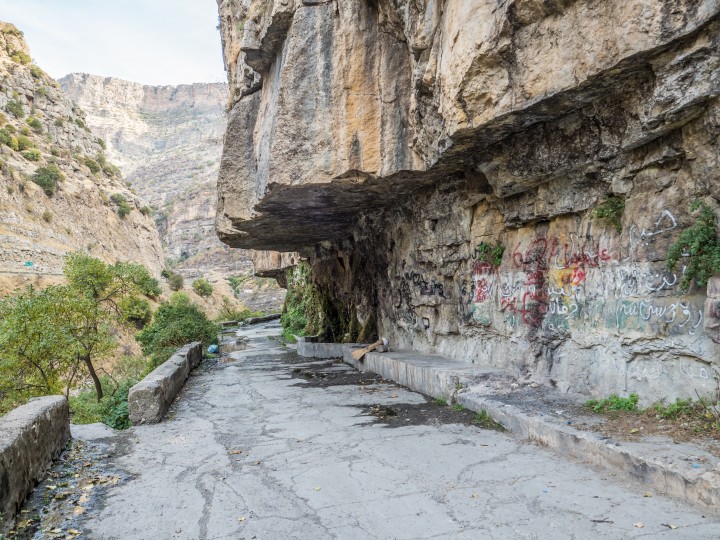
Old Hamilton Road, excavated with basic tools from 1928 to 1932. You can see the "new" Hamilton road in the distance to the left. Imagine how precarious getting two cars through when this was the only road. Now it's used for picnics and just foot traffic.
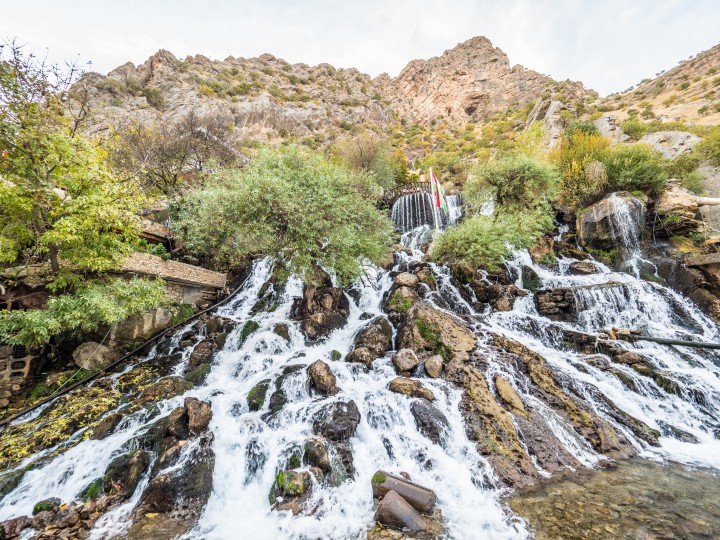
Bekhal Waterfalls... This was a November visit, clearly "off-season", but the spot was definitely a tourist destination. Even during this time it had a moderate number of local visitors coming and going.
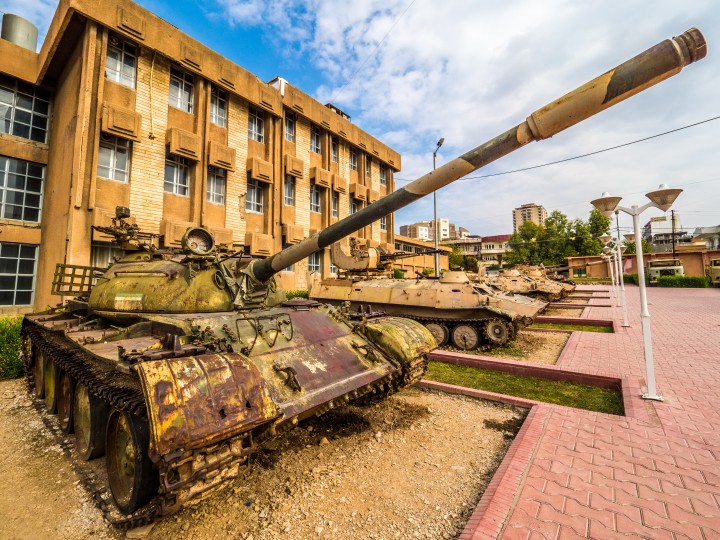
Amna Suraka "Torture Museum" in Sulaymaniyah, Kurdistan. Located in the former headquarters of the Mukhabarat, Saddam Hussein’s intelligence agency. This place is primarily a museum with exhibits related to Sadaam Husseins murder & torture of the Kurdish people although it also now includes exhibits related to the recent fight against ISIS.
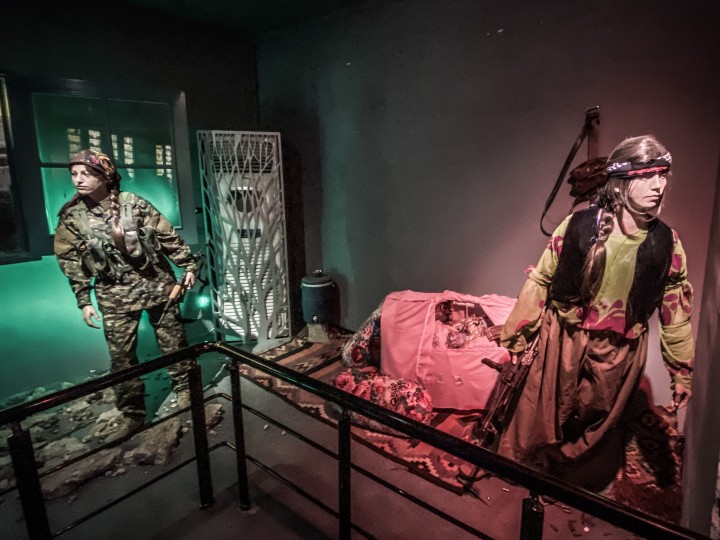
Peshmerga fighter exhibit in museum. Women fighters are held in especially high regard. This is an exhibit specific to that. On the frontline, it looks like women fighters are often snipers and artillery experts.

